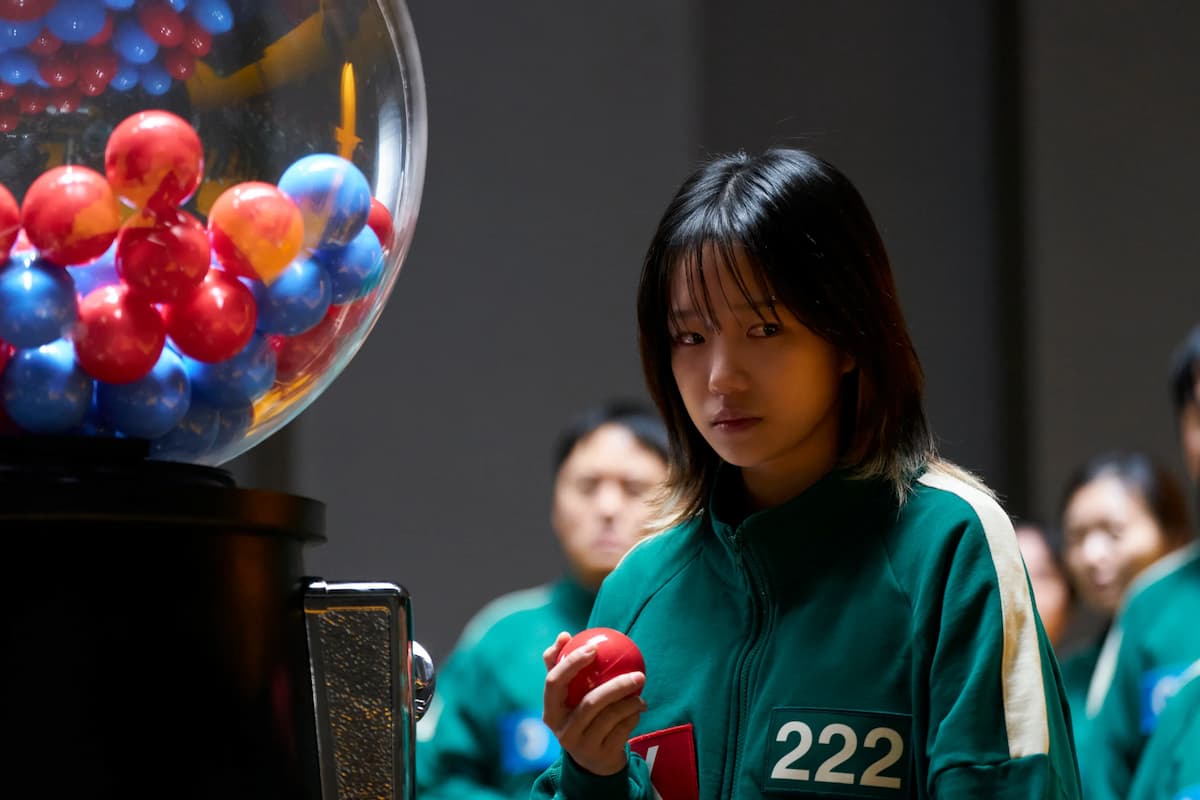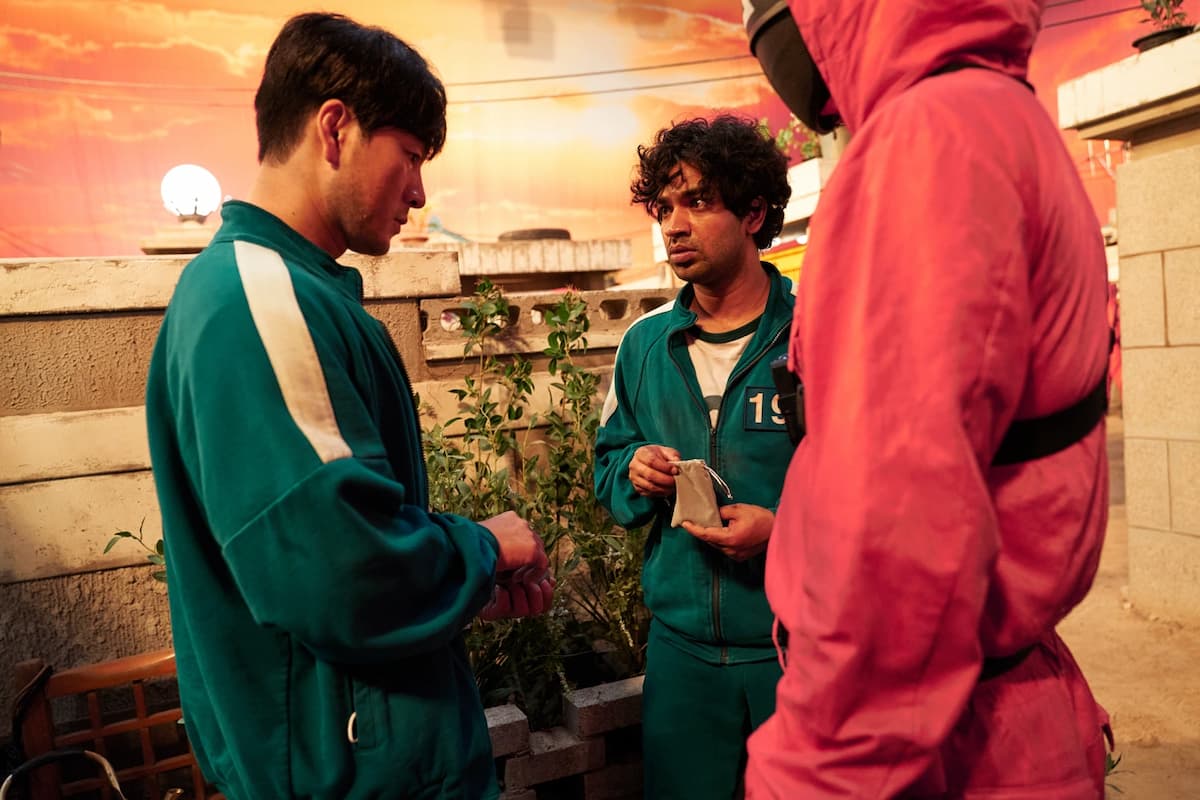Squid Game was a cultural phenomenon when it first released in 2021. It served as a devastatingly heartbreaking critique of society and capitalism. It felt like the ultimate complementary piece to 2019’s Parasite with its commentary on class divide and its repercussions if taken to the extreme. The show’s debut season ended on a cliffhanger that teased viewers with the promise of a follow-up, but as I and many others observed, Squid Game‘s ending was perfect. Anything more would just tarnish the show’s pristine legacy. Alas, Squid Game Season 3 has proven us to be right in that regard.
As a direct follow-up to Season 2, which released back in December 2024, Squid Game Season 3 is a six-episode affair that shows off the fallout of the contestants’ rebellion and the conclusion of this round of games. Right off the bat, we see that our main protagonist Gi-hun is thoroughly crushed by his failure. He is the one who incited the rebellion, after all, but due to In-ho’s betrayal, the whole affair failed and he even got his friend killed in the process.
The first half of Squid Game Season 3 wraps up most of the loose character threads started in Season 2. Hyun-ju, who was one of the standout characters from Season 2, gets a heartbreaking and painful end to her character arc, as do Yong-sik and Geum-ja, the mother and son pair that kept viewers on the edge of their seats last December. Some of these characters I wish had more of a chance to shine in Season 3, as the leftovers quickly proved to be seriously lacking.
In particular, Min-su’s story gets dragged out for way too long, which is surprising for such a nothingburger character that contributed little to the overall narrative. After killing off Thanos in Season 2, it quickly became apparent that Season 3 would suffer from the lack of a compelling villain. I’d hoped that the fraud of a shaman Seon-nyeo would take center stage as our main antagonist, but unfortunately, she ends up just being a bit of a one-trick bit that falls flat.

Outside of the games, we also get a conclusion to No-eul’s story. No-eul was certainly one of the highlights from Season 2, as we were finally getting a perspective from the other side of the games. Here, we get to follow the perspective of a guard in the Squid Game and see how things work in the background. Out of all the new characters introduced here, No-eul had the most potential as a nuanced, morally grey character, similar to Sae-byeok’s role in Season 1. However, that potential is quickly squandered on half-baked plot lines that lead to unsatisfying endings, which brings us to the biggest weakness of Seasons 2 and 3: the complete lack of focus.
What made Season 1 so compelling was its excellent cast of characters. From the very first episode, the show established its major players. Deok-su was the obvious antagonist, accompanied by Mi-nyeo as the wild card. Ali, Sae-byeok, and Il-nam, and Sang-woo were the good guys, but the show took the time to flesh out the little inconsistencies of the latter two. We also had one smaller sub-plot to follow outside of the games: Jun-ho and his personal quest to find his older brother. This was enough to round out the first season. Bad guys, good guys, morally grey guys. Everything fit nicely into a properly structured package that knew exactly what kind of story it wanted to tell.
With Season 2 and 3, too many new characters and subplots are introduced, everything is half-baked, and nothing ends satisfactorily. On one hand, the show wants us to get attached to the mother and son. But wait, we need to dedicate some time to the pregnant girl and her flop crypto bro boyfriend. Oh wait, we also need to talk about Thanos and his little druggie crew. And within that little druggie crew, the show needs to carve out time for Min-su and his cowardice. Don’t dawdle for too long, though, because we’ve also got Dae-ho and Hyun-ju bonding over their military days, as well as Gi-hun’s friendship with Jung-bae. Then there’s No-eul and Gyeong-seok, and I’m not even sure the latter says more than 10 words in both seasons combined. And we can’t forget the Front Man either, because his whole push-pull conflict and moral tests with Gi-hun are supposed to be the focus of these two seasons.
But that’s not all! Don’t forget Jun-ho and his awful quest to find the island, which ends up feeling like a complete waste of time because we know there’s no way the show’s letting him actually find the island until the very last episode. Because of that, all the Jun-ho segments in both seasons feel like filler.
The pacing is just an absolute mess with all these disparate storylines that meander and converge in confusing ways, and ultimately lead nowhere. With so many different threads, Squid Game Season 3 completely loses focus and we’re left with a bunch of characters everyone’s ultimately going to forget.
To top it all off, Squid Game Season 3 ends with yet another teaser for a potential fourth season. As if things couldn’t get any worse, the teaser suggests that the games could potentially go to America next which, if Squid Game: The Challenge and the cringey VIP actors are any indication, sounds like a terrible idea.

Squid Game was never about the violence or the thrilling deaths. At its core, it was always a human drama about what people are capable of when pushed to their limits. Some of them break, some rise above and thrive, and some sink to their lowest depths. Season 1 encapsulated this perfectly in its marble game episode — an episode with zero action or combat, just dialogue and subtle mind games. In this episode, Sang-woo, who’s been largely depicted as a dependable guy who will do whatever it takes to help his team survive, finally shows his true self. He’s selfish and only cares about his own survival, and he will indeed do whatever it takes to get through, even if it means deceiving and leaving someone who trusts him so completely to die in the most cruel way.
Sang-woo’s face turn is a key turning point in Squid Game. It works because it’s been set up since the very first episode, and these little character threads have been allowed to simmer under the surface for six episodes before the show finally reveals its hand. Season 3 does none of this, and instead hopes that its previously established legacy would be enough to carry its undeveloped characters and plots to their unearned payoffs.
Squid Game Season 3 is now available for streaming on Netflix.


